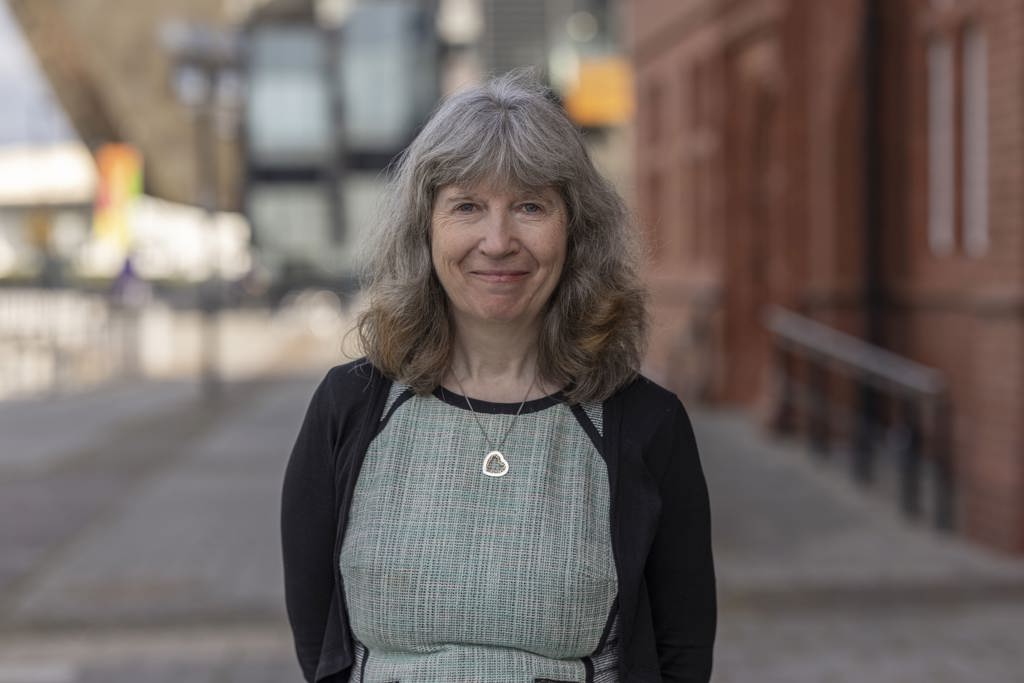The importance of music when learning Welsh

I’ll never forget during my first term at Aberystwyth University, where I studied Welsh, sitting with friends in the Cŵps pub as they all sang Welsh folk song, Lleucu Llwyd, at the top of their voices, and I’d never even heard the song.
Having grown up in Tonyrefail in a non-Welsh speaking household, I hadn’t heard the famous song before. I loved learning languages and had studied O Level and A Level Welsh as a second language at Tonyrefail Comprehensive School, but Welsh bands and songs were completely new to me.
Of course, I was 18 years old, without a job, family or responsibilities, and I was able to immerse myself in Welsh-language culture from that first term onwards. Very soon, I was able to join in, singing along as if I’d always known the words.
And so I’ve always felt it our duty in the Learn Welsh sector to introduce learners and new speakers to as much Welsh culture and music as possible.
Attract, teach and support active speakers
At the National Centre, we see how music can both attract people to the Welsh language and support them in the language learning process, while also fostering a sense of belonging in the wider community.
When talking to our learners, we hear time and time again how people have been inspired to learn after hearing and liking a particular Welsh band or song.
I can think of three recent examples – one learner who lived in Austria, but who has now settled in Caernarfon, who came across alternative rock band, Gorkys Zygotic Monkey, by chance on Spotify. Another from north east Wales, who saw Daniel Lloyd perform in a panto and then fell in love with his band, Daniel Lloyd a Mr Pinc. And then a person from Cardiff, who heard Welsh bands on BBC Radio 5 on Dydd Miwsig Cymru (Welsh Language Music Day) and decided to start learning the language in earnest.
We also hear how our learners like to listen to Welsh music to help them learn new vocabulary. Both BBC Radio Cymru and S4C are valued partners for us at the Centre and listening to music, and hearing natural conversation in Welsh, is an important part of the learning process.
The third element I feel very strongly about – and which is crucial if we are to create confident speakers - is how music can foster a sense of belonging.
That’s why we consider supporting learners in their communities almost as important as the lessons themselves. A great deal of valuable and essential work is undertaken by our course providers across Wales, with the Centre supporting at a national level.
Residential courses
One example of the Centre’s strategic role is its residential courses. We’ll shortly be holding our popular ‘Cymraeg yn y Cartref’ (Welsh at Home) course at the Urdd residential camp, Llangrannog, in Ceredigion. It will offer a welcoming environment for families to speak Welsh, while also introducing them to Welsh culture – singing with children’s entertainer, Martyn Geraint, and dancing with record-breaking clog dancer, Tudur Phillips.
We’re also proud of our new residential course for young people, which is being held in Carmarthen to coincide with the music festival, Gŵyl Canol Dref. The young people will attend workshops and classes during the day, before heading off to the festival in the evening, to enjoy all the Welsh bands who’ll be performing.
Y Gair a’r Gân
Our ‘Y Gair a’r Gân’ (The Word and the Song) scheme is going from strength to strength - with Tara Bethan and Alun Saunders as this year’s guest artists. This scheme gives our course providers an opportunity to hold gigs with the artists - which gives learners all over Wales the chance to hear popular Welsh songs, while getting to know our national stars.
Unique Welsh culture
Yes, music has a central place in our learners' language journey, and I’m determined to give our new Welsh speakers as many opportunities as possible to enjoy our unique Welsh culture.
I’d better go now and pack my ukulele ready for our ukulele club in Tonyrefail - a club that was set up following the National Eisteddfod in Pontypridd last summer. It gives an opportunity for Welsh and non-Welsh speakers alike to come together to learn popular Welsh songs such as Ar Lan y Môr and Coffi Du, while playing the ukulele...and I love it!
By Helen Prosser, Director of Teaching and Learning at the National Centre for Learning Welsh.